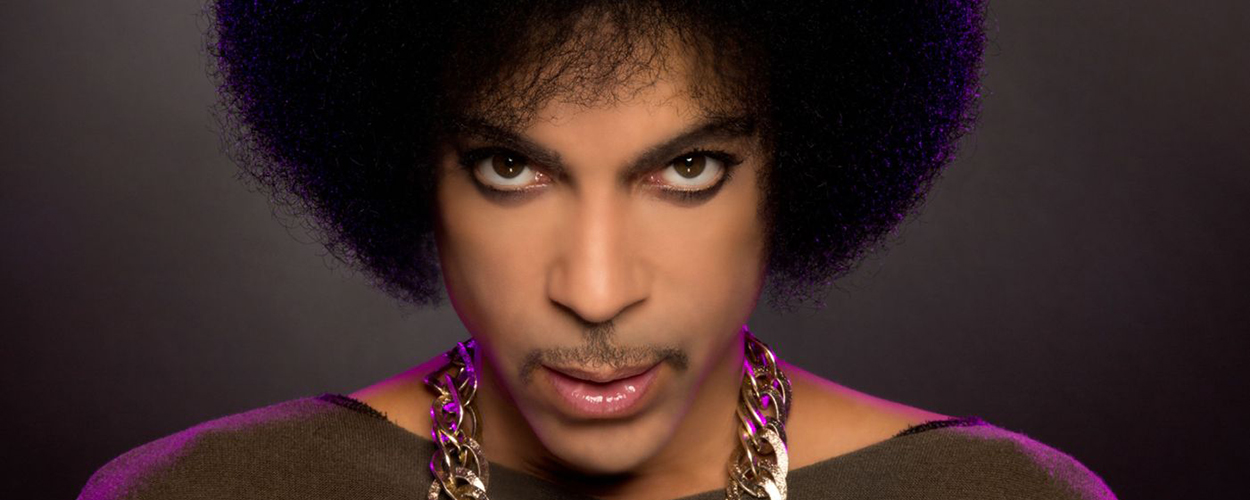This website uses cookies so that we can provide you with the best user experience possible. Cookie information is stored in your browser and performs functions such as recognising you when you return to our website and helping our team to understand which sections of the website you find most interesting and useful.
Artist News Obituaries
Prince 1958-2016
By Andy Malt | Published on Friday 22 April 2016

Prince was found dead at his Paisley Park, Minnesota home yesterday. He was 57.
Born Prince Rogers Nelson in 1957, he was given the stage name of his jazz musician father. He began playing music at an early age, and signed his first record deal with Warner Bros Records aged nineteen. His then manager Owen Husney managed to negotiate a deal giving the musician unprecedented creative control over his music. This resulted in 1978’s ‘For You’, on which Prince played every instrument and produced the record himself.
The album was not a success critically or commercially. However, the next year’s similarly self-contained follow-up, ‘Prince’, went platinum, spawning hit singles ‘Why You Wanna Treat Me So Bad?’ and ‘I Wanna Be Your Lover’. After this, starting with 1980’s ‘Dirty Mind’, Prince moved into what would become his trademark funk sound with explicitly sexual lyrics.
These lyrics (which he later distanced himself from after becoming a Jehovah’s Witness) reached peak controversy in 1985 when the song ‘Darling Nikki’ reportedly prompted Tipper Gore to set up the Parents Music Resource Center, leading to ‘parental advisory’ stickers being slapped on records considered unsuitable for children.
The song was taken from the soundtrack of ‘Purple Rain’, the movie which assured the already ascendant Prince his position as a superstar. The financial boost from this also allowed him to develop his Paisley Park recording studio, where he was able to better indulge his prolific creativity – as well as the 39 studio albums he did release, it’s thought that at least 26, along with other material, sit in the studio’s vault.
In the 90s, he became increasingly displeased with the control that Warner Bros had over his work. In 1993, he changed his name to an unpronounceable symbol in protest against the fact that the label owned the rights to his birth name – the media then taking to referring to him as The Artist Formerly Known As Prince.
The musician then began attempting to fulfil his contractual obligations by quickly releasing new albums, often featuring previously recorded material. This led to a legal battle with the label, which accused him of saturating the market. As a result, Prince generally appeared publicly during this period with the word ‘Slave’ written on his face.
When his Warner contract eventually expired in 2000, he changed his name back to Prince for the next phase of his career. Though it wasn’t the end of the Warner alliance. More recently he repaired his relationship with the mini-major, agreeing to extend his deals on early works with Warner outside the US, though taking control of them domestically himself.
Once outside of major label control for new material, Prince experimented with various distribution models for his records, giving away albums with newspapers and concert tickets, and selling them direct-to-fan online – opening his own digital subscription platform in 2001.
Although he was an early innovator on the internet, he became more famous for his actions to keep his music off it. Any rush to stream his back catalogue in the wake of his death is made more difficult by the fact that he worked hard to keep his music off YouTube and the like, and recently took his records off all streaming services other than Tidal.
Still working prolifically in the studio and as a live performer at the time of his death, and with an autobiography in the works, Prince will be remembered for many reasons. Though overall it will be as an artist who was truly unique in numerous ways for his entire career of almost 40 years.





